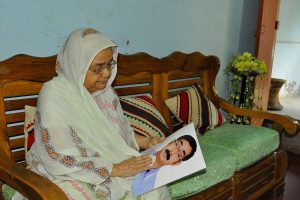A student-led people’s uprising forced Bangladeshi Prime Minister Sheikh Hasina to resign and flee the country on August 5. Nobel Laureate Dr. Muhammad Yunus, whom Hasina persistently harassed, is now heading an interim government as the chief adviser.
Despite initial chaos and violence on the streets, the new government has started to assert control and authority over the country. The protesting students and opposition parties, including the Bangladesh Nationalist Party (BNP), have extended their support to Yunus’ interim government.
At his oath-taking ceremony, Yunus described the day as one of “our pride” as Bangladesh had won “independence for the second time.” It was in 1971 that Bangladesh became an independent country, free from Pakistan. Yunus was describing Hasina’s ouster as heralding the country’s second independence.
“We have to protect this independence,” he said.
His statement resonated with the wider public. For the past 15 years, Hasina’s rule was marked by severe repression of freedom of speech, systematization of state-led enforced disappearances, extrajudicial killing of political opponents and critics, and widespread vote rigging.
During the peak of the recent student protests, hundreds of civilians, including at least 32 children, and 44 policemen were killed in addition to several thousands of people being injured by police action. Internet was shut off for a week and telecommunication was heavily disrupted.
Reports from the ground paint a gruesome picture of Hasina’s crackdown on the protests. State forces were seen shooting protestors from helicopters. Snipers also shot protesters, and indiscriminate arrests were made at night to propagate a sense of terror among the public. Yet the people, including girls and women, persisted with their protests till Hasina stepped down.
People now have high expectations of the Yunus administration. To that end, it must establish a national commission for investigating enforced disappearances in Bangladesh.
Over 700 Bangladeshis were forcefully disappeared under Sheikh Hasina’s rule. Some of them returned home, others did not.
In Bangladesh, enforced disappearance by the state refers to a process where a person has been detained by state forces, who however do not acknowledge that they are holding the person captive, thus making the whole process illegal.
Following the fall of Hasina’s government, three Bangladeshis – former Brigadier General Abdullahil Amaan Azmi, Supreme Court lawyer Ahmad Bin Kashem, and Indigenous activist Michael Chakma – all of who were forcefully disappeared, were released.
Azmi and Arman were released after eight years from a secret illegal black site run by the Hasina regime; Chakma was released after five years. All three said they were held in grave-like conditions, where there was no sun or light and most of the time their hands were cuffed and eyes blindfolded.
The release of three prisoners confirms the allegations of human rights organizations that Hasina’s government used enforced disappearance, a crime against humanity, as a systematic tool to quell opposition and critics. During the student protests, some of the student leaders were forcefully disappeared but for a shorter period, and they were released promptly.
A key source of peoples’ anger against Hasina was premised upon her use of enforced disappearance to silence criticism. Therefore, Yunus’ government must start the process of addressing this state atrocity.
The proposed national commission could take inspiration from a similar commission established by Argentina to investigate thousands of forcefully disappeared Argentines from 1976-1983. Argentina’s National Commission on the Disappearance of Persons first assembled a team of researchers, who produced a report investigating perpetrators, including those who bore command responsibilities and carried out operations entailing kidnapping, torture, and illegal detention. The findings of that commission were published in a report titled Nunca Más (Never Again) and provided justification to initiate trials against military generals in Argentina.
Yunus’s government could follow the example of Argentina and establish a commission of researchers to investigate each victim of enforced disappearance in Bangladesh.
The victims who are alive and free now and the family members of those who never returned have the right to know what happened to them. They have the right to know who had command responsibility for the torture and killings, how many black sites exist in Bangladesh, which forces were involved in these disappearances, etc.
The findings should result in a specialist tribunal to try those state officials who committed these grave crimes against humanity.
Despite his popularity, Yunus’ administration does not have a public mandate to run the country. He needs to oversee a peaceful transition of power by organizing free and fair elections. The opposition BNP is already exerting gentle pressure on the government to hold elections within the next six months. However, others believe that the interim administration should rule a bit longer, and carry out some reforms within the state institutions, before handing over power to an elected and political government.
Yunus’s time to bring in change is limited. Consequently, he should at least start the process of establishing the commission for the disappeared people, ensuring that it would operate independently in a manner that no government that follows his administration could interfere with this process.

































